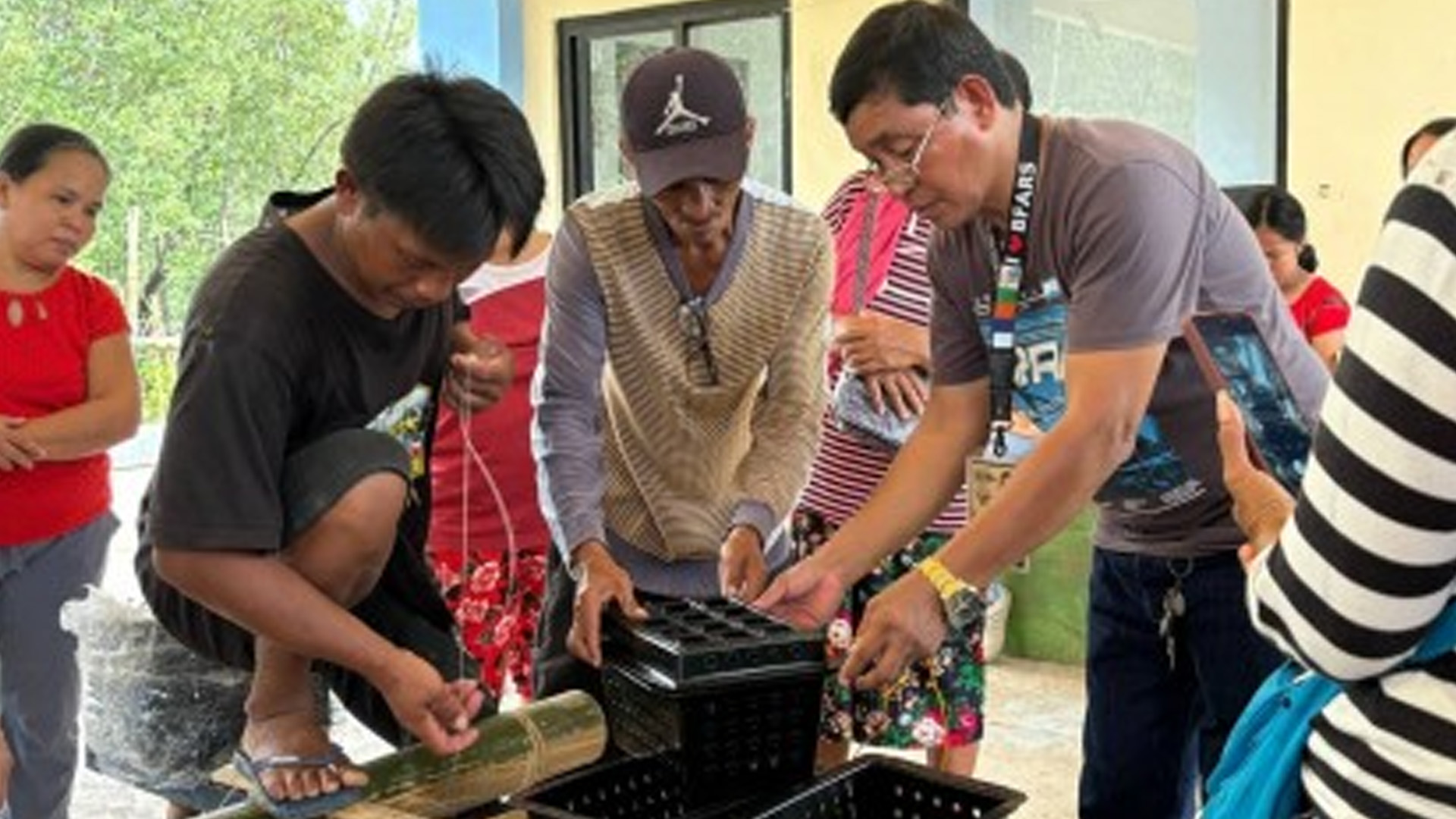At least five fisherfolk groups in Catanduanes province have received skills training and seed capital for a mangrove crab fattening project through the Sustainable Livelihood Program (SLP) of the Department of Social Welfare and Development in Bicol (DSWD-5).
In a phone interview on Wednesday, Jastine Joy Dichoso Escuro, DSWD-Bicol project development officer for SLP, said the five associations with more than 75 members were given various amounts as capital ranging from PHP75,000 to PHP375,000, or a total of PHP1.17 million, on Tuesday.
She said the SLP beneficiaries were the Kinisan sa Bacak SLP Association (SLPA), Bagatabao Crab Fattening SLPA, Minaili Crab Fattening SLPA, all in Bagamanoc town; Kinis ng Payo SLPA in Panganiban; and the Kinis ni Napo SLPA in the municipality of Viga.
“The mangrove crab fattening project was identified as a viable micro-enterprise for the three municipalities, offering a sustainable livelihood opportunity for the groups. We want them to have a long-term plan for their livelihood; aside from skills for crab fattening, they also learned entrepreneurial mind-setting workshops and financial literacy,” Escuro said.
She said the training sessions aimed to provide participants with a thorough understanding of cooperative concepts and principles, effective financial management, and the technical expertise required for mangrove crab fattening, with an emphasis on good aquaculture practices.
“With the newly acquired skills, the SLPAs are expected to enhance their livelihood activities, contributing to the overall goals of food security and economic stability in their communities. Part of the training was the hands-on preparation of mangrove crab cages,” she said.
Escuro said the livelihood initiative is part of the Zero Hunger Program Convergence Budgeting, a government effort to pool resources from various national agencies to build the capacity of community-based organizations.
DSWD, with the Cooperative Development Authority (CDA), the Department of Trade and Industry (DTI), and the Bureau of Fisheries and Aquatic Resources (BFAR) conducted the capacity-building training for the SLPAs. (PNA)









